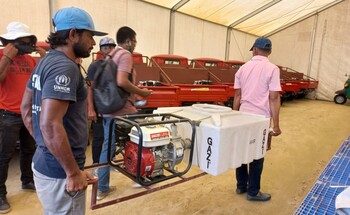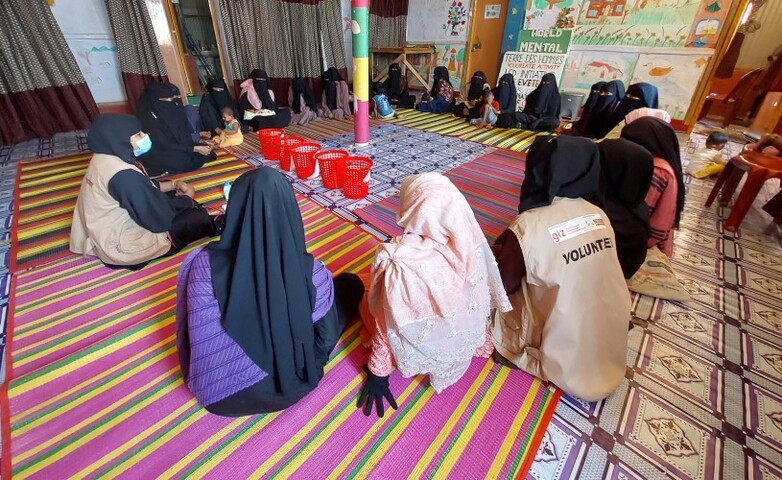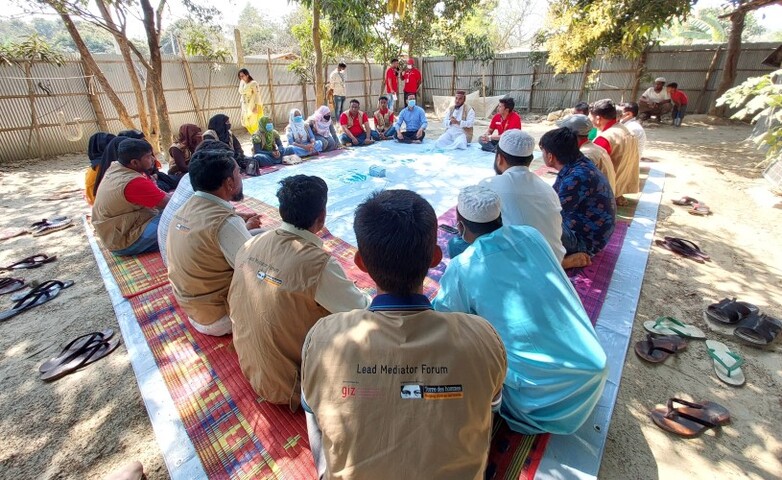Promoting peaceful coexistence between displaced Rohingya and host communities in Bangladesh
Socio-economic Support to Host and Displaced Communities in Cox’s Bazar District (SHADE)
-
Client
German Federal Ministry for Economic Cooperation and Development (BMZ)
-
Country
-
Political sponsors
More
-
Runtime
2023 to 2026
-
Products and expertise
Social development

Context
Since 2017, almost one million Rohingya, have fled to Bangladesh as displaced people from Myanmar. They live in and around makeshift camps in the sub-districts of Ukhia and Teknaf in Cox’s Bazar district. This long-lasting crisis has made life harder for the nearby Bangladeshi communities, especially in Teknaf and Ukhiya. Consequently, both the local and displaced people face serious social and economic challenges.
Furthermore, frequent fires, natural disasters, and funding shortages disrupt the lives of the Rohingya. Additionally, increasing violent conflicts, insecurity, gender-based violence (GBV), drug abuse, crime, and sexual violence escalate tensions between the local Bangladeshi and Rohingya communities. Gender inequality, lack of skills and training, and poor protection systems worsen these dire conditions.
Objective
Conflict root causes and gender inequality, including GBV, have been addressed, and the livelihoods of host communities and displaced Rohingya in targeted areas have improved.
 © GIZ
© GIZApproach
The project aims to achieve its goals through the following measures:
- Implementing gender-responsive and inclusive approaches in areas inhabited by host and displaced Rohingya communities.
- Training state and non-state actors to improve livelihoods and promote peaceful living conditions of the targeted communities through skill development and increased income opportunities.
- Collaborating with non-governmental organisations (NGOs).
- Promoting peaceful coexistence by raising awareness, providing gender responsive training, and enhancing understanding among state and non-state actors, including Rohingya and host community residents.

Last update: June 2024





